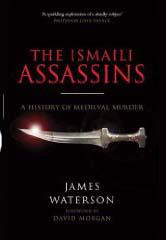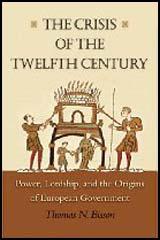Spartacus Review
Volume 28: 14th November, 2008
Medieval World

Title: The Ismaili Assassins
Author: James Waterson
Editor:
Publisher: Frontline Books
Price: £19.99
Bookshop: Amazon
Spartacus Website: Medieval World
Category:
The Ismaili Assassins were an underground group of political killers who were ready to kill Christians and Muslims alike with complete disregard for their own lives. These devoted murderers were under the powerful control of a grand master who used assassination as part of a grand strategic vision that embraced Egypt, the Levant and Persia and even reached the court of the Mongol Khans in far away Qaraqorum. The Assassins were meticulous in their killing. They often slayed their victims in public, thereby cultivating their terrifying reputation. They assumed disguises and their weapon of choice was a dagger. The dagger was blessed by the grand master and killing with it was a holy and sanctified act - poison or other methods of murder were forbidden to the followers of the sect. Surviving a mission was considered a deep dishonour and mothers rejoiced when they heard that their Assassin sons had died having completed their deadly acts. Their formidable reputation spread far and wide. In 1253, the Mongol chiefs were so fearful of them that they massacred and enslaved the Assassins' women and children in an attempt to liquidate the sect. The English monarch, Edward I, was nearly dispatched by their blades and Richard the Lionheart's reputation was sullied by his association with the Assassins' murder of Conrad of Montferrat. The Ismaili Assassins explores the origins, actions and legacy of this notorious sect. Enriched with eyewitness accounts from Islamic and Western sources, this important book unlocks the history of the Crusades and the early Islamic period, giving the reader entry into a historical epoch that is thrilling and pertinent.

Title: The Crisis of the Twelfth Century
Author: Thomas N. Bisson
Editor:
Publisher: Princeton University Press
Price: £19.95
Bookshop: Amazon
Spartacus Website: Medieval World
Category:
Medieval civilization came of age in thunderous events like the Norman Conquest and the First Crusade. Power fell into the hands of men around castles who imposed coercive new lordships in quest of nobility, heedless of the old public order. In The Crisis of the Twelfth Century, acclaimed historian Thomas Bisson asks what it was like to live in a Europe without government, and he asks how people experienced power, and suffered. Rethinking a familiar history as a problem of origins, he explores the circumstances that impelled knights, emperors, nobles, and churchmen to infuse lordship with social purpose. Bisson traces the origins of European government to a crisis of lordship and its resolution. King John of England was only the latest and most conspicuous in a gallery of bad lords who dominated the populace instead of ruling it. Men like him had been all too commonplace in the twelfth century. More and more knights pretended to powers and status, encroached on clerical domains and exploited peasants, and came to seem threatening to social order and peace. Yet as Bisson shows, it was not so much the oppressed people as their tormentors who were in crisis. Covering all of Western Christendom, this book suggests what these violent people--and the outcries they provoked--contributed to the making of governments in kingdoms, principalities, and towns. The Crisis of the Twelfth Century is an unparalleled cultural history of power in medieval Europe, and a monumental achievement by one of today's foremost medievalists.
